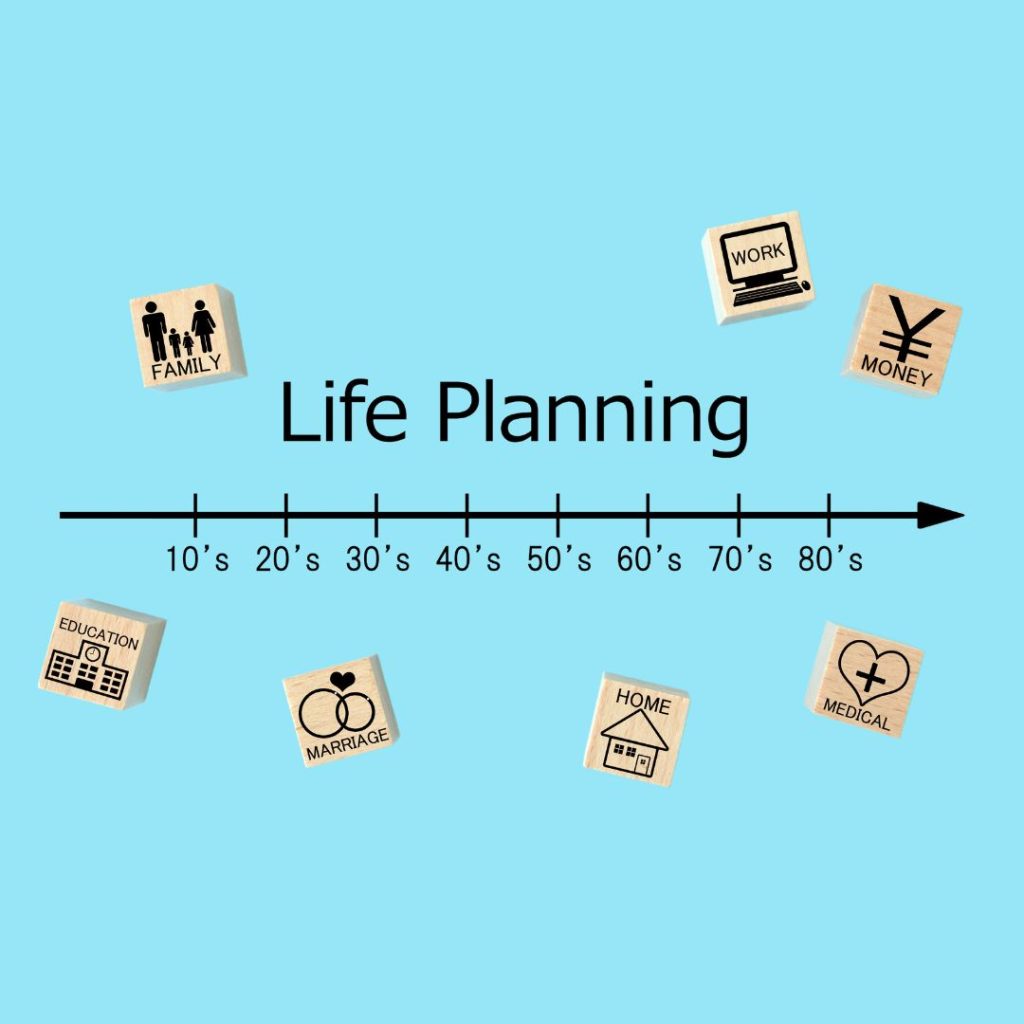Planning your Finances in ‘Different Stages’ of Life

It’s that time of year when we start to explore ways of being more organised in our lives, finances and health. Hopefully in 2024 we can find a way to be more successful (maybe more organised) than ever! Prices of basic groceries seem to be increasing daily, and our money isn’t stretching as much as it used to. So, we need a solution to cope with ‘unexpected expenses’ and to plan for an unknown future. As such, a financial plan can save us a lot of stress over the next twelve months. So let’s get started!
A financial plan is more of a marathon than an 100 metre sprint. It takes careful planning, preparation, patience and calculation to get it right. Everyone’s financial roadmap is dynamic, ever-changing and depends on your life choices. Your financial needs change with the seasons of life you are going through. Periodic re-examination of your progress can help you make sure you don’t merely react to life’s unpredictable turns, but rather, proactively plan for your financial future.
The overall process can be thought of as life-cycle financial planning. From the moment you start earning money in your youth to retirement, each chapter of life presents unique financial challenges and exciting possibilities.
What To Know and How To Plan for Each Life Stage
At the core, life-cycle financial planning serves as a personalised compass. It helps you categorise the nuanced financial requirements that characterise the different phases of life into different section. Life-cycle planning is about knowing where you are—and, more importantly where you’re headed. It helps you ensure that you’re financially equipped for the next stage of your journey ahead.
It can be as simple or as complicated as you make it. For example, when you have school going children, your priority is on education related expenses, uniforms, technology, trips, extra-curricular activities and more.
Consider your life’s overall financial arc as consisting of five pivotal phases:
- Youthful exploration. From age 13 to 17.
- Blossoming adulthood. Age 18 to 25.
- Family and foundations. Age 26 to 45.
- Pre-retirement. Age 45 to 64.
- Retirement. Age 65 and older.
At the same time, this financial arc overlaps with three periods in which we typically take different approaches to wealth:
- Wealth initiation. The beginning of your career, characterised by hard work and foundational financial blueprints.
- Wealth consolidation. Once you’ve built a solid base for generating income, in this second phase you increasingly focus on saving as much of that income as possible and making those savings grow, with an eye to living on them in retirement.
- Wealth fulfilment. Retirement, when you can enjoy the fruits of decades of work and planning.
A Closer Look at Your Financial Life Stages
Let’s take a closer look at your five pivotal phases of life.
Start with your youthful exploration phase. The teenage years are synonymous with discovery. Alongside schoolwork, some teens take holiday jobs that offer an introduction to managing a budget and personal finance. Torn between saving and spending on enticements like the latest phone or trendy fashion, teenagers learn to make financial choices. This phase is foundational, teaching teens to distinguish between needs and wants.
In the blossoming adulthood phase, people typically take their first steps out into the world. Young adults strive for financial autonomy. This is an inflection point. Young adults choose career paths, some choose based on earning potential. They also make financial decisions that can influence the decades ahead: What percentage of my income goes to housing? How much can I afford to save? Where do I want to live? Should I start a retirement account, or do I have enough time to do that later?
About The Author: Agnes Chikukwa Hove
Agnes is currently the Chief Executive at Kijani Blue Agribusiness and a board member at African Women in Agriculture (AWIA). Her career has been varied and non-traditional, and has allowed her to pivot from mining to farming and then heading a non-profit for teens. Agnes’ mission is to humbly serve God by inspiring and empowering people to live a life of health, creativity and passion while they uplift others! She possesses a Master of Science (MSc) Degree in Strategic Management, a Business Management (BBA) Degree and a Diploma in Nursing, plus many other short courses. Agnes is a seasoned motivational speaker, who has a passion for, and is experienced in speaking on the following: Personal Finances, Entrepreneurship, Women in business, Personal Growth, Health/ Wellbeing and Leadership.
Getting More Serious About Money
Life is often exciting during the family and foundation years, frequently coloured by family commitments and aspirations. The financial stakes of your decisions are higher as you may have a partner and children. You’re better able to amass wealth. You’re more eager to preserve it. You think more about diversifying your investments. You start to weigh the value of buying insurance. You focus more on safeguarding assets and protecting loved ones.
Then, you enter the fourth phase, your pre-retirement years, around age 45. Now that you’re inching toward retirement, you likely want to recalibrate your financial strategies. With responsibilities such as children’s education mostly behind you, you’ve got newfound financial flexibility. Your focus is now firmly on building a retirement fund. You think about strategic investments. You wonder more about comprehensive healthcare for your retirement years. Given the complexities of this stage, many people seek expert advice from a financial advisor.
Finally, you hit retirement. Your years of careful planning will hopefully start to pay off. It’s a time to enjoy the harvest while continuing to manage your finances wisely so your retirement years are comfortable and free of financial stress.
Realisation of what phase you are in, and the needs of that phase is very important. Periodic reassessment of your status ensures proactive shaping of your financial future amid life’s unpredictable turns.
Life cycle financial planning is not simply about managing your finances, it’s about creating a long term financial strategy that is aligned to all the stages of your life. It will change depending on what’s happening in your life, an unexpected illness, travel for family occasions and any other unexpected events. By being proactive about your finances, and planning for the phases of life, you avoid being caught on the back foot and you can plan for your evolving needs!
All the best!








